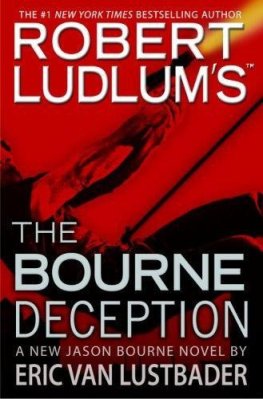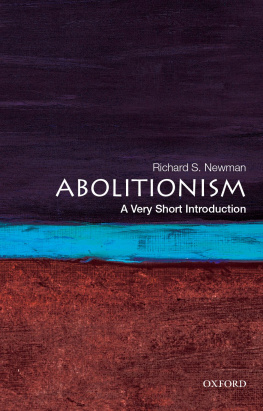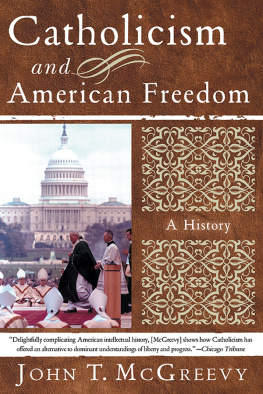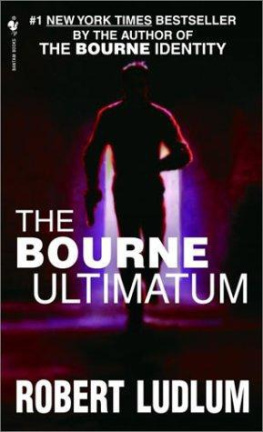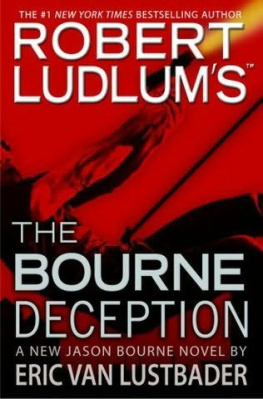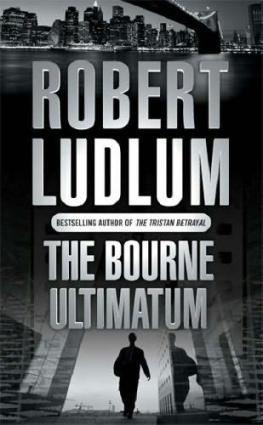TO PREACH DELIVERANCE
TO THE CAPTIVES
ANTISLAVERY, ABOLITION, AND THE ATLANTIC WORLD
R. J. M. Blackett and Edward Rugemer, Series Editors
James Brewer Stewart, Editor Emeritus
Collection of the Massachusetts Historical Society
TO PREACH DELIVERANCE TO THE CAPTIVES
FREEDOM AND SLAVERY
IN THE
PROTESTANT MIND
OF
GEORGE BOURNE
1780 1845
Ryan C . McIlhenny

LOUISIANA STATE UNIVERSITY PRESS
BATON ROUGE
Published by Louisiana State University Press
Copyright 2020 by Louisiana State University Press
All rights reserved
Manufactured in the United States of America
First printing
DESIGNER: Michelle A. Neustrom
TYPEFACE: Adobe Caslon Pro
PRINTER AND BINDER: LSI
Portions of chapter 2 were first published in Remember, Church - Officers , Your Awful Responsibility: Presbyterians, Immediate Abolition, and George Bournes The Book and Slavery Irreconcilable , Southern Studies 16, no. 1 (Spring/Summer 2009).
Portions of chapter 4 were first published in I am not my own director: Catholic Slavery and Protestant Freedom in George Bournes Lorette, Nineteenth - Century Prose 39, no. 1 (Spring 2012): 377410.
LIBRARY OF CONGRESS CATALOGING- IN - PUBLICATION DATA
Names: McIlhenny, Ryan C., 1975 author.
Title: To preach deliverance to the captives : freedom and slavery in the Protestant mind of George Bourne, 17801845 / Ryan C. McIlhenny.
Description: Baton Rouge : Louisiana State University Press, 2020. | Series: Antislavery, abolition, and the Atlantic world | Includes bibliographical references and index.
Identifiers: LCCN 2019045764 (print) | LCCN 2019045765 (ebook) | ISBN 978-0-8071-7266-7 (cloth) | ISBN 978-0-8071-7392-3 (pdf) | ISBN 978-0-8071-7393-0 (epub)
Subjects: LCSH: Bourne, George, 17801845. | Antislavery movements United States History 19th century. | Presbyterian Church United States History 19th century. | United States Church history 19th century.
Classification: LCC BX9225.B68 M35 2020 (print) | LCC BX9225.B68 (ebook) | DDC 241/.675092 dc
LC record available at https://lccn.loc.gov/2019045764
LC ebook record available at https://lccn.loc.gov/2019045765
The paper in this book meets the guidelines for permanence and durability of the Committee on Production Guidelines for Book Longevity of the Council on Library Resources.

CONTENTS
CHAPTER 2
The Church, Immediacy, and the Trials of Bourne
CHAPTER 3
The Maturation of Bournes Antislavery Bible Argument
CHAPTER 4
Catholic Slavery and Protestant Freedom in Bournes Lorette
CHAPTER 5
Abolition and the Woman Question in Bournes Slavery Illustrated in Its Effects on Woman and Domestic Society
CHAPTER 6
The Nation, the Millennium, and Bournes American Text-book of Popery
CONCLUSION
The Bourne Legacy and American Culture
ACKNOWLEDGMENTS
T he history program at the University of California, Irvine, a highly engaging and collegial environment, has helped produce some of the most capable contemporary historians. I especially want to thank the late Dickson Bruce Jr. (19462014), a master scholar and kind mentor, for guiding me through the earliest drafts of this project. It is truly sad that he is not here to read this book, but I am confident he would be proud.
I also want to thank the Munger Research Center staff at the Huntington Library for providing me access to the Bourne family papers. When I learned that these sources had reached the Huntington, I contacted the center immediately. Staff members quickly cataloged the materials (within a couple of weeks, if I remember correctly). Much of what I gained from the Bourne papers appears in the introduction and conclusion.
A note of appreciation should also be given to the editors and reviewers of LSUs Antislavery, Abolition, and the Atlantic World series. Acquisitions editor Rand Dotson was patient as I interrupted his busy schedule with my frequent and admittedly not - so - urgent questions about the manuscript. A warm thanks also for the constructive observations offered by the initial reviewers of the project, including series editors Edward Rugemer and Richard Blackett.
But I must extend a special note of gratitude to James Brewer Stewart. A good part of the success of a work such as this comes by way of the support offered by wiser intellectuals in the field. Jim contacted me after he read my Journal of the Early Republic review of Wendell Phillips, Social Justice, and the Power of the Past, edited by A. J. Aisirithe and Donald Yacovone. I took the opportunity of that initial contact to ask him if he would be interested in reading a version of this study. Spending nearly ten years at an intellectually hollow institution in Southern California, I was, given my heavy teaching load and administrative responsibilities, unable to make any substantial revision to the work, with the exception of two peer - reviewed publications. But with Jims prompting and the time I had here in Shanghai, with a considerably lighter teaching load and more supportive environment, I had the opportunity to initiate a structural revision of the project, which included significant additions to a number of sections, resulting in more critical reflections on the impact of slavery and anti - Catholicism in contemporary culture. I am thrilled to offer this formal introduction of the work and mind of George Bourne to the historical community. It is a great privilege to refer to Jim as a friend and mentor. I hope he and I will have the opportunity to work together again soon.
This book is dedicated to my wife Becky, a faithful, loving, confident, self - reliant , godly, independent woman. She has never complained about living a life with an academic, though she has had plenty of opportunities to do so. Though the book is dedicated to my dear partner, I would be remiss if I failed to mention my children: Fish, Canon, Josiah, and Selah. They too have been with me through this project and this often penurious academic life.
TO PREACH DELIVERANCE
TO THE CAPTIVES
INTRODUCTION
THE PROTESTANT MIND
OF GEORGE BOURNE
The only effectual and Christian method to destroy the natural effects of slavery upon the slaveholders ... from our country; instantly, universally, and altogether, [is] to proclaim liberty to the captives, to loose the bands of wickedness, to undo the heavy burdens, to break every yoke, and to let the oppressed go free.
GEORGE BOURNE, Picture of Slavery in the United States of America
I n a private letter written a couple years before the outbreak of the Civil War, William Lloyd Garrison, New Englands premier voice of radical abolitionism, confessed his early and large indebtedness to the Reverend George Bourne (17801845) for enabling him to apprehend with irresistible clearness the inherent sinfulness of slavery under all circumstances, and its utter incompatibility with the spirit and precepts of Christianity.
Born in the summer of 1780, George Bourne was raised in a staunchly Protestant home in Westbury, Wiltshire, England. Uninterested in following his father Samuel, a cloth manufacturer and a deacon in a local Congregationalist church, into the world of business, Bourne studied Latin, Greek, Hebrew, church history, and logic at Homerton College outside of London with the intent of pursuing a career as a writer and minister. Before the closing of the Post, Bourne published his first work, The Spirit of the Public Journals, an assortment of essays from leading journals in the United States and Great Britain, followed by a biography of Napoleon Bonaparte in 1806, and the first American biography of John Wesley in 1807. Not always wise in how he handled his finances, Bourne frequently moved with his family in pursuit of more economically stable opportunities to preach and write on issues related to theology and social reform.


